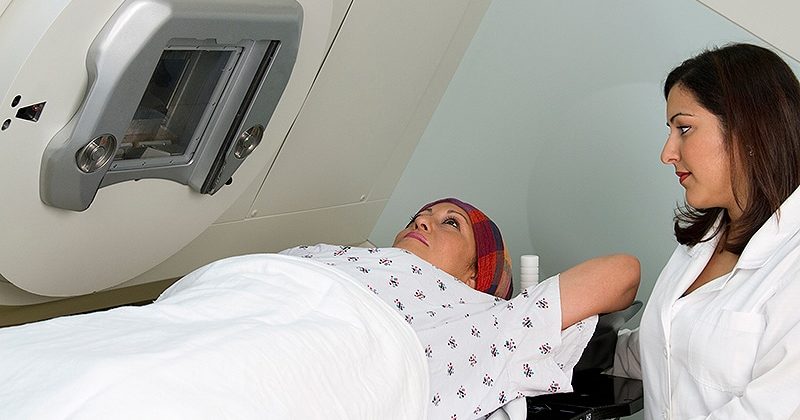When treating early-stage breast cancer, decisions made on age alone can miss the mark, say researchers reporting new data showing a sharp cut-off at age 70.

Dr Wesley Chalcott
“In our study, one of the most significant variables in determining whether breast cancer patients who are close their 70th birthday are recommended standard-of-care radiation or de-escalated treatment is whether they show up a few months before, or a few months after that 70th birthday,” commented study author Wesley J. Talcott, MD, of the Department of Therapeutic Radiology at the Yale School of Medicine in New Haven, Connecticut.
The results show a trend in which radiation therapy is 50% less likely to be prescribed for patients age 70 and older with early-stage breast cancer, even when controlling for population size, patient demographics, and disease specific variables.
This suggests that oncologists are weighing the variable of age too heavily when deciding on adjuvant treatments, the authors suggest.
“In certain circumstances, breast cancer oncology providers are treating age like a binary categorical variable when selecting patients for treatments or diagnostic procedures, rather than the continuous variable that it is,” Talcott commented to Medscape Medical News.
The study was published online January 31 in the International Journal of Radiation Oncology: Biology, Physics.
Approached for comment, Casey Chollet-Lipscomb, MD, radiation oncologist with Tennessee Oncology in Nashville, who was not associated with the study, agreed with its main finding.

Dr Casey Chollet-Lipscomb
“The study helps emphasize the importance of individualized care,” she said. “Increasing age is the most common risk factor for breast cancer, but breast cancer is an incredibly diverse disease. While you can observe trends based on age, every patient is unique, and they can’t be lumped into one bucket and prescribed treatment based on a strict age cutoff.”
Study Details
The retrospective study included two cohorts of women identified in the National Cancer Data Base (2004-2017) all of whom underwent lumpectomy for early-stage breast cancer. All patients had “strong indications” for adjuvant treatment.
Patients in cohort 1 (n = 160,990) included women with estrogen-receptor negative cancer, tumor size >3 cm, who were determined to be “appropriate” for radiation therapy.
Patients in cohort 2 (n = 394,946) had hormone-receptor positive cancer, tumor size >5 mm, and were considered to be “appropriate” candidates for endocrine therapy.
Multivariable analysis (MVA) was performed to control for comorbidity burden (measured by the Charlson-Deyo Comorbidity Index), race and ethnicity, insurance status, academic vs non-academic treatment center, median annual income of a patient’s area of residence, distance from the site of treatment, and pathology variables including number of lymph nodes sampled, histologic grade, and genomic risk score.
In cohort 1, radiation was recommended for 90%-92% of patients between the ages of 50-69; this dropped to 81% for those aged 70.
After MVA, it was determined that age difference was an independent predictor for adjuvant radiation recommendation only at age 70 vs 69 (odds ratio [OR], 0.47; 95% CI 0.39 – 0.57, P < .001).
For cohort 2, year-over-year age difference predicted endocrine therapy recommendation only at the juncture between age 70 vs 69 (OR, 0.86, 95% CI 0.74 – 0.99, P = .001).
“Our results don’t say that we should be increasing the amount of treatment for patients over the age 70 or decreasing that patient treatment for patients younger than age 70. What we believe is that we need to be assessing physiologic age of our patients when treating patients,” Talcott said.
“We would do this by looking at, not just how many years a patient has been on this Earth, but also what their current health status is? How many good quality-of-life years they might have after treatment or without it, and what the patient wants in terms of burden of treatment? This is a much more valuable way to approach the allocation of treatments than using age alone,” he added.
Both Talcott and Chollet-Lipscomb agreed that a limitation of the study was a lack of data on how physicians decided on a specific treatment in each individual case, but they agree that even without this information the results were “significant.”
Chollet-Lipscomb also highlighted the factors other than age she would use to determine the best adjuvant treatment for a patient with early stage breast cancer, including the individual features of the tumor, how aggressive it looks under the microscope, what the receptor status is, and a patient’s overall performance status and comorbidities.
Talcott and Chollet-Lipscomb report no relevant financial relationships. The authors had no acknowledgement of research support for this study.
Int J Radiat Oncol Biol Phys. Published online January 31, 2023. Full text
For more from Medscape Oncology, join us on Twitter and Facebook
Source: Read Full Article
